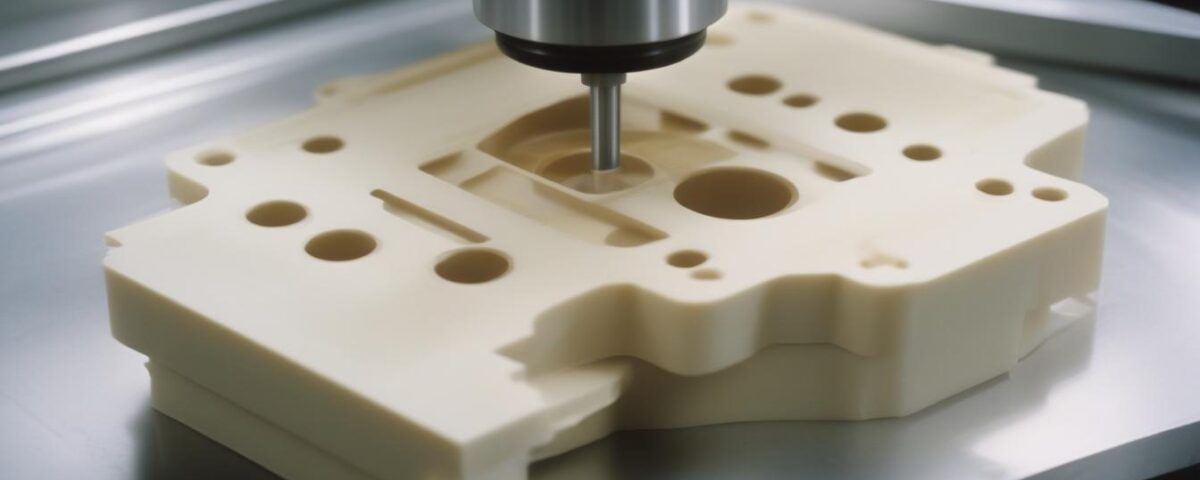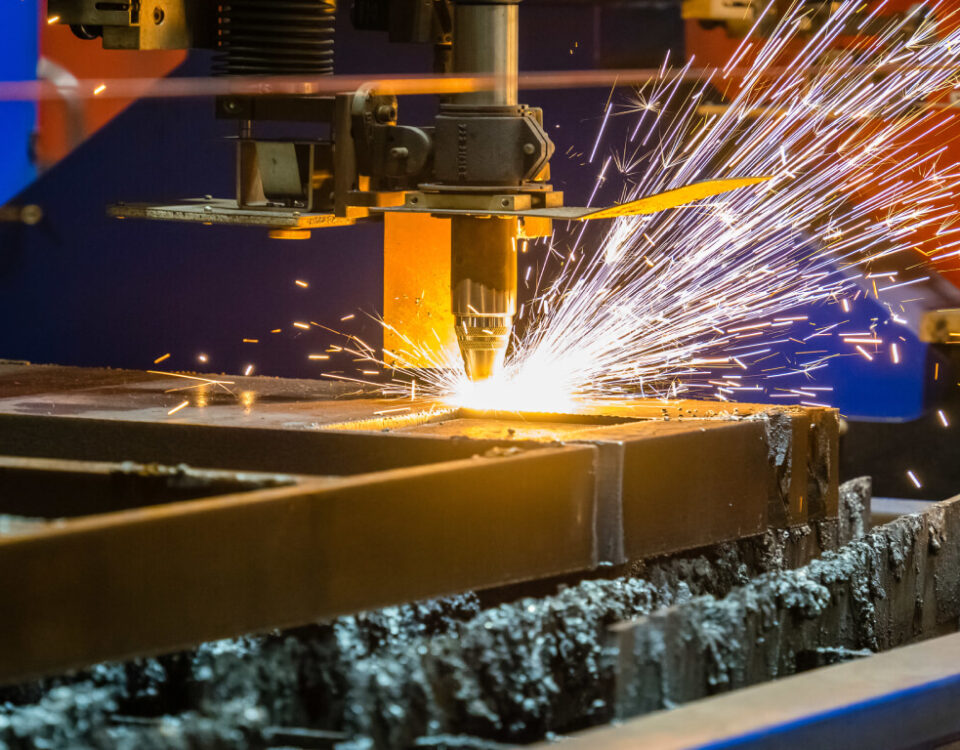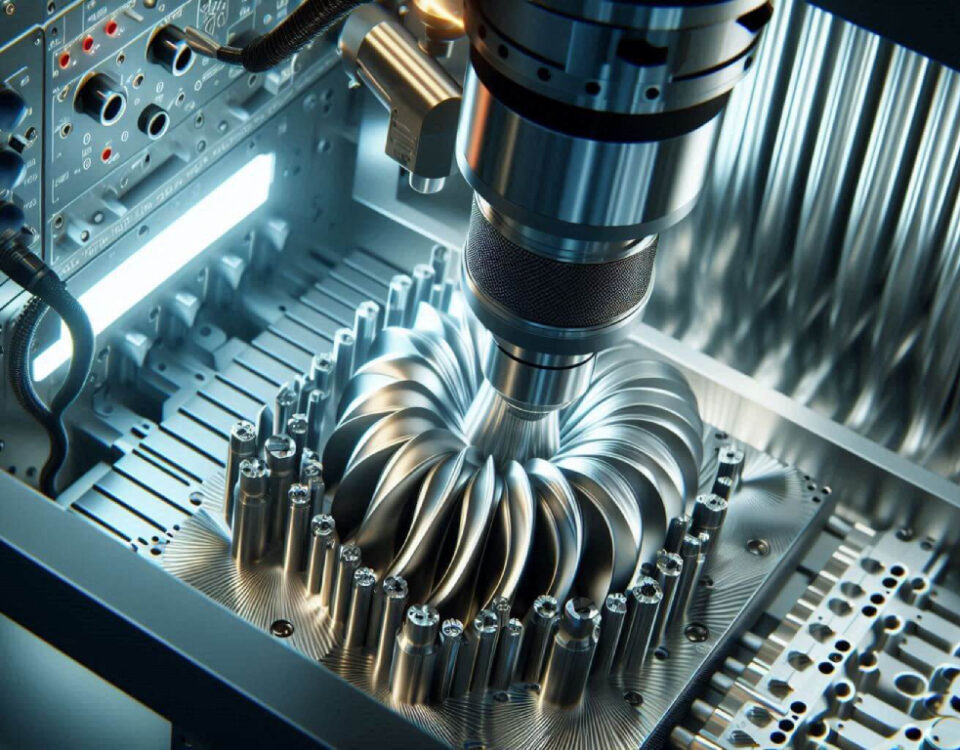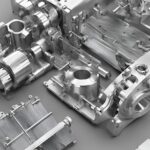
Comprehensive Guide to Mechanical Design Workflow
3 July 2024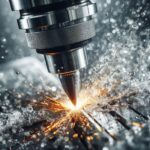
Optimizing the application of grinding fluid in machining processes
11 July 2024Introduction
Delrin, a versatile acetal resin also known as polyoxymethylene (POM), stands as a cornerstone in modern machining due to its exceptional properties and wide-ranging applications. Renowned for its high strength, stiffness, and excellent machinability, Delrin has earned a pivotal role in industries requiring precision engineering and durability. From automotive components to medical devices, its reliability in delivering tight tolerances and superior mechanical performance makes it a preferred choice for CNC machining services worldwide.
Whether you're new to machining Delrin or seeking to refine your current practices, this guide will equip you with essential insights and best practices for leveraging Delrin's capabilities effectively in your CNC operations.
Delrin's significance extends beyond its mechanical properties; it embodies a strategic advantage for industries demanding robust, dimensionally stable components. By understanding how to harness Delrin's machinability and durability, manufacturers can streamline production processes and enhance product reliability, paving the way for innovation and excellence in CNC machining services.
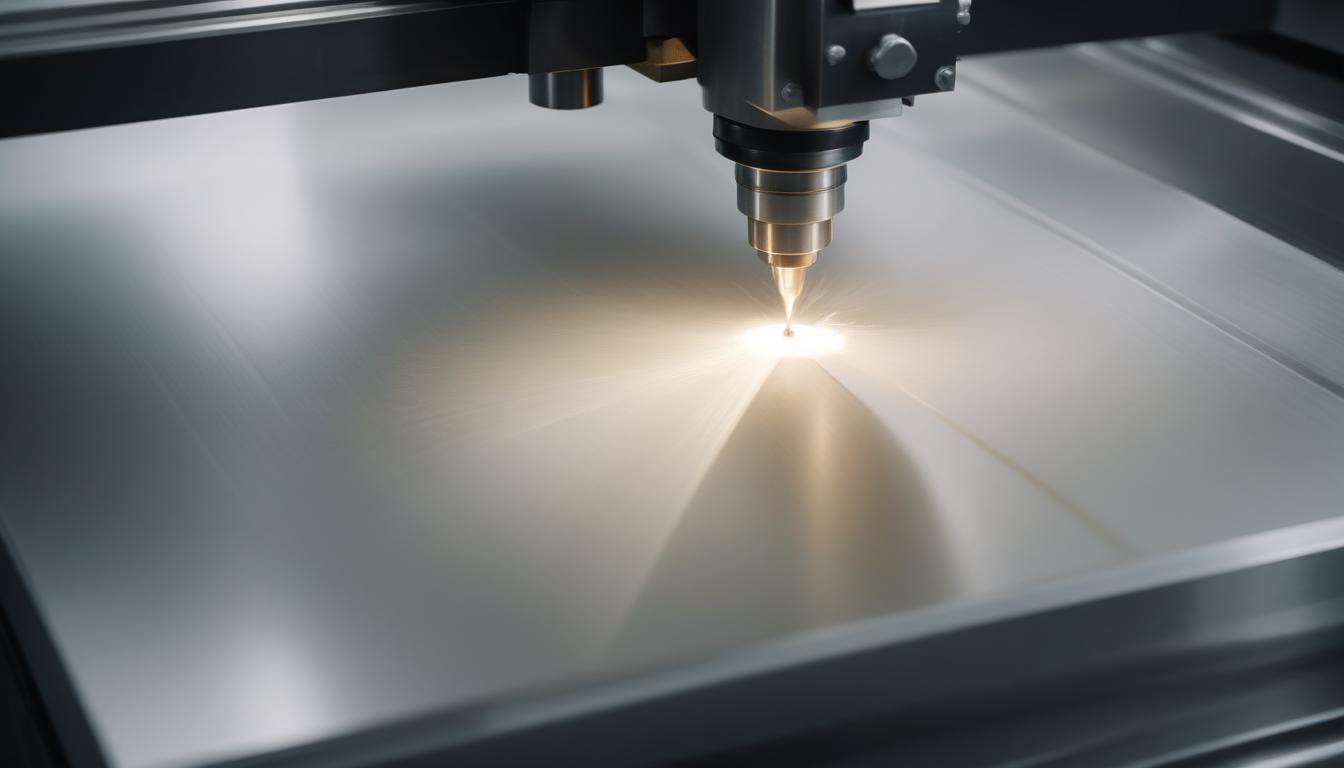
What is Delrin?
Delrin, scientifically known as polyoxymethylene (POM), is a high-performance engineering thermoplastic renowned for its exceptional mechanical properties and versatility in industrial applications. Chemically, Delrin consists of repeating units of formaldehyde, polymerized to form a crystalline structure that imparts remarkable strength, stiffness, and dimensional stability to the material. This molecular structure not only contributes to Delrin's robustness but also enhances its machinability, making it a preferred choice for CNC machining services.
Properties Suitable for Machining
Delrin's composition and inherent properties make it highly suitable for machining processes. It exhibits high tensile strength, allowing it to withstand mechanical stress and load-bearing applications effectively. The material's stiffness ensures dimensional stability and resistance to deformation under varying temperatures and loads, essential for precision machining operations. Additionally, Delrin's low coefficient of friction and excellent wear resistance contribute to its suitability for manufacturing components requiring smooth operation and prolonged durability.
Preparing for Machining Delrin
Machining Delrin requires careful preparation and adherence to specific practices to ensure optimal results and minimize operational challenges. From selecting appropriate tools to implementing effective coolant strategies, each step in the preparation process plays a crucial role in achieving precision and efficiency.
Selecting the Right Tools and Equipment
Choosing the correct tools and equipment is fundamental to successful Delrin machining. High-speed steel (HSS) or carbide tools are preferred due to their hardness and ability to maintain sharp cutting edges when machining Delrin's tough, crystalline structure. Carbide tools, in particular, offer superior wear resistance and longevity, making them suitable for high-volume production runs and complex machining operations. It is essential to select tools with sharp cutting edges and appropriate rake angles to minimize cutting forces and heat generation during machining.
Recommended Cutting Speeds, Feeds, and Depths
Optimizing cutting parameters is critical for achieving precise and efficient Delrin machining. Recommended cutting speeds typically range from 500 to 1,500 surface feet per minute (SFM), depending on the tool material and machining operation. Higher cutting speeds can help maintain chip control and reduce tool wear, while moderate feed rates ensure smooth material removal and dimensional accuracy. When determining cutting depths, it is advisable to start with conservative values and gradually increase them based on tool performance and material response, aiming to prevent tool deflection and maintain part integrity.
Importance of Coolants and Lubricants
While Delrin has inherent lubricity and can be machined dry in some cases, the use of coolants or lubricants can significantly enhance machining performance and surface finish. A light mist of coolant or air helps dissipate heat generated during cutting, reducing thermal deformation and improving chip evacuation. However, excessive coolant should be avoided to prevent material swelling or warping. Lubricants can also aid in reducing friction between the cutting tool and Delrin, prolonging tool life and ensuring consistent machining quality.
Best Practices for Material Storage and Preparation
Proper material storage and preparation are essential to maintaining Delrin's dimensional stability and machinability. Store Delrin in a controlled environment with stable temperature and humidity levels to prevent moisture absorption, which can affect material properties and machining accuracy. Before machining, acclimatize Delrin to the operating environment to minimize dimensional changes during machining. Ensure that the material is free from contaminants and defects that could compromise machining quality, conducting thorough inspections and cleaning as necessary.
Machining Delrin requires meticulous planning and execution to harness its unique properties effectively. By selecting the right tools, optimizing cutting parameters, implementing effective coolant strategies, and maintaining proper material storage practices, manufacturers can maximize productivity, achieve superior part quality, and meet the demanding requirements of CNC machining services. These preparatory steps not only enhance operational efficiency but also contribute to the overall reliability and performance of machined Delrin components across various industrial applications.
Best Practices for CNC Machining Delrin
Achieving optimal results when CNC machining Delrin involves implementing best practices that encompass cutting parameter optimization, tool selection, waste reduction techniques, and quality assurance measures. These practices are essential for maintaining efficiency, maximizing tool longevity, and ensuring consistent high-quality output.
Optimizing Cutting Parameters for High-Quality Output
Effective cutting parameter optimization is crucial for achieving precise machining results and minimizing production time. Begin by determining the appropriate cutting speeds and feed rates based on Delrin's material properties and the specific machining operation. For Delrin, recommended cutting speeds typically range between 500 to 1,500 surface feet per minute (SFM), with feed rates adjusted accordingly to ensure chip control and surface finish. It is essential to monitor cutting forces and adjust parameters as needed to prevent tool wear and maintain dimensional accuracy throughout the machining process.
Tool Selection and Maintenance for Prolonged Tool Life
Selecting the right tools and maintaining them properly are key factors in maximizing tool life and machining efficiency. Carbide or high-speed steel (HSS) tools with sharp cutting edges and appropriate rake angles are recommended for machining Delrin. Regularly inspect tools for signs of wear or damage, and replace or sharpen them as necessary to ensure consistent cutting performance. Proper tool maintenance, including cleaning and lubrication, helps prevent built-up residues and extends tool longevity, reducing downtime and maintenance costs over time.
Techniques for Minimizing Waste and Maximizing Efficiency
To enhance production efficiency and minimize material waste when machining Delrin, adopt techniques such as optimized toolpath programming and efficient machining strategies. Implementing high-speed machining techniques and adaptive toolpaths can reduce cycle times and improve material utilization, thereby lowering production costs and enhancing overall throughput. Additionally, utilize advanced CAM software to simulate machining operations and identify potential inefficiencies or areas for optimization before initiating production runs.
Ensuring Consistent Quality Through Regular Inspection and Testing
Maintaining consistent quality is paramount in CNC machining Delrin parts to meet stringent tolerance requirements and customer specifications. Implement rigorous inspection protocols throughout the machining process, including in-process checks and final inspections using coordinate measuring machines (CMMs) or other metrology equipment. Verify critical dimensions, surface finish, and part functionality to identify deviations early and make necessary adjustments to machining parameters or tooling setups. Conduct periodic testing and validation to ensure that machined parts meet performance standards and regulatory requirements.
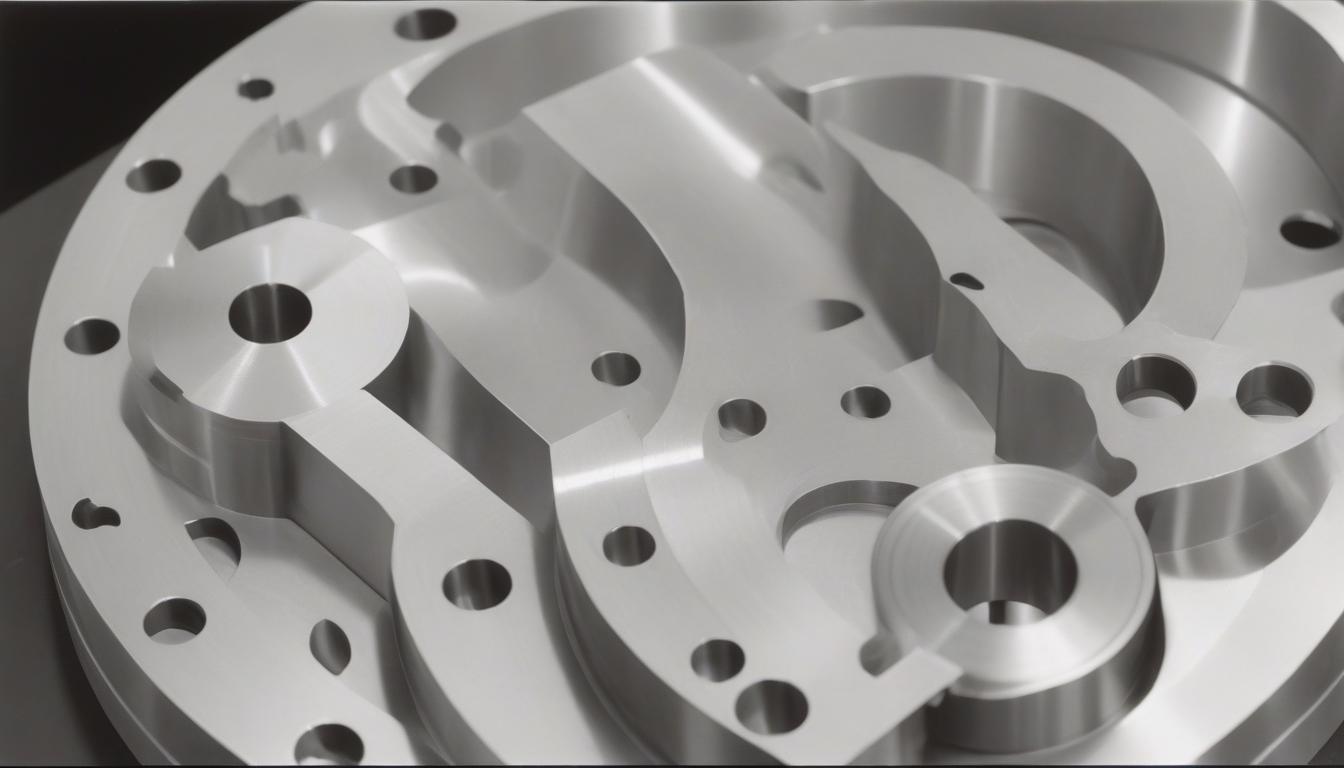
Post-Machining Considerations
After completing the machining process, attention to post-machining considerations is essential to ensure the integrity, functionality, and longevity of Delrin parts. From finishing techniques to quality assurance measures, each step contributes to delivering high-quality machined components that meet customer expectations and industry standards.
Finishing Techniques for Achieving the Desired Surface Quality
Achieving a smooth and uniform surface finish is crucial for many Delrin applications. Utilize appropriate finishing techniques such as sanding, polishing, or buffing to remove machining marks, burrs, and surface imperfections. Fine-grit sandpaper or abrasive pads can be used to achieve a consistent surface texture, enhancing both aesthetic appeal and functional performance. Consider employing chemical polishing or vibratory finishing methods for intricate parts or those requiring a high-gloss finish. The choice of finishing technique should align with the part's design specifications and intended application to ensure optimal surface quality and performance.
Cleaning and Deburring Processes to Ensure Part Integrity
Thorough cleaning and deburring are critical post-machining processes to remove contaminants, burrs, and residual machining debris from Delrin parts. Use mild solvents, ultrasonic cleaning baths, or precision deburring tools to effectively clean and deburr machined components. Pay particular attention to internal features and intricate geometries that may trap debris or require specialized cleaning methods. Proper deburring reduces the risk of part failure, improves dimensional accuracy, and enhances overall part integrity, preparing machined Delrin parts for subsequent assembly or finishing processes.
Inspection Methods for Quality Assurance
Implement comprehensive inspection methods to validate dimensional accuracy, surface finish, and overall quality of machined Delrin parts. Utilize precision measuring tools such as calipers, micrometers, or CMMs to verify critical dimensions and tolerances against engineering drawings or specifications. Conduct visual inspections under adequate lighting conditions to identify surface defects, scratches, or irregularities that may impact part functionality or appearance. Perform functional testing or assembly checks as necessary to ensure that machined parts meet performance requirements and customer expectations before final approval and shipment.
Proper Packaging and Storage to Maintain Part Quality
Proper packaging and storage practices are essential to preserve the quality and functionality of machined Delrin parts during transportation and storage. Use protective packaging materials such as anti-static bags, foam inserts, or custom containers to prevent surface damage, abrasion, or contamination. Label packages with part identification, handling instructions, and storage conditions to facilitate proper inventory management and traceability. Store Delrin parts in a clean, dry environment with controlled temperature and humidity levels to minimize the risk of moisture absorption, dimensional changes, or material degradation over time.
Applications of Machined Delrin Parts
Delrin, prized for its exceptional mechanical properties and versatility, finds extensive applications across diverse industries where precision, durability, and reliability are paramount. Let's explore how Delrin components contribute to innovation and performance in automotive, aerospace, medical devices, and consumer electronics sectors.
Automotive
In the automotive industry, Delrin's high strength, stiffness, and low friction properties make it ideal for manufacturing precision components such as gears, bearings, bushings, and mechanical parts. Delrin components contribute to improving vehicle performance, reducing noise and vibration, and enhancing durability in critical applications where wear resistance and dimensional stability are essential. Its ability to withstand harsh environmental conditions and maintain tight tolerances ensures reliable operation and longevity in automotive systems.
Aerospace
Delrin's lightweight characteristics, combined with its robust mechanical properties, make it a preferred material for aerospace applications. Machined Delrin parts are utilized in aerospace components such as connectors, brackets, housings, and interior fittings where weight reduction, dimensional accuracy, and resistance to chemicals and fuels are crucial. Delrin's ability to meet stringent aerospace standards for strength-to-weight ratio and performance under extreme temperatures makes it indispensable for enhancing aircraft efficiency and safety.
Medical Devices
The medical devices industry relies on Delrin for producing components that require biocompatibility, sterilization resistance, and precision machining capabilities. Delrin is used in surgical instruments, orthopedic implants, drug delivery systems, and medical device housings where hygiene, reliability, and dimensional accuracy are critical. Its smooth surface finish and resistance to chemical sterilization methods ensure optimal performance and patient safety in medical applications demanding high reliability and regulatory compliance.
Consumer Electronics
Delrin's electrical insulating properties, dimensional stability, and resistance to wear make it an ideal choice for manufacturing components in consumer electronics. Machined Delrin parts are used in connectors, switches, actuators, and mechanical components of electronic devices where reliability, durability, and precise operation are essential. Delrin's ability to maintain tight tolerances and resist deformation under varying environmental conditions ensures consistent performance and longevity of consumer electronics products.
Conclusion
In conclusion, machining Delrin presents manufacturers with a wealth of opportunities to achieve precision, durability, and performance across various industrial applications. Throughout this guide, we have explored the essential aspects of preparing, machining, and post-processing Delrin to optimize CNC machining services effectively. Delrin's unique combination of high strength, stiffness, low friction, and dimensional stability makes it a versatile choice for producing complex and reliable components in automotive, aerospace, medical devices, and consumer electronics sectors.
By adhering to best practices such as selecting the right tools, optimizing cutting parameters, and implementing thorough quality assurance measures, manufacturers can enhance operational efficiency and deliver superior-quality machined Delrin parts. Finishing techniques and meticulous post-machining considerations further ensure that Delrin components meet stringent performance standards and exceed customer expectations for reliability and longevity.
We encourage businesses and industries to leverage CNC machining services for their Delrin projects, leveraging the expertise and capabilities of machining professionals to achieve cost-effective production, consistent quality, and innovation in product design. Embracing Delrin's capabilities in CNC machining not only enhances manufacturing capabilities but also fosters advancements in technology and product performance across global markets. As industries continue to evolve, Delrin remains a cornerstone material for driving innovation and excellence in precision engineering and manufacturing.

